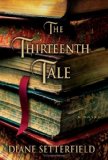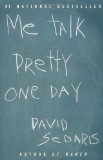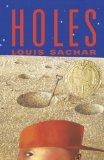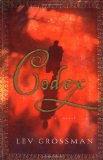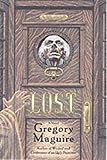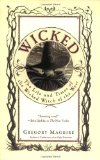 Diane Setterfield’s debut novel The Thirteenth Tale has generated quite a buzz in literary circles. I first heard about the book while browsing Barnes and Nobel’s website, shopping for birthday books with the gift certificate my parents had sent me. One has to admit the cover itself is gorgeous, and despite the old axiom, readers often do judge books by their covers. I can’t count the number of times I’ve been tricked into buying a book I ultimately didn’t like because it had a gorgeous cover (one example that comes to mind is Blackbird House by Alice Hoffman).
Diane Setterfield’s debut novel The Thirteenth Tale has generated quite a buzz in literary circles. I first heard about the book while browsing Barnes and Nobel’s website, shopping for birthday books with the gift certificate my parents had sent me. One has to admit the cover itself is gorgeous, and despite the old axiom, readers often do judge books by their covers. I can’t count the number of times I’ve been tricked into buying a book I ultimately didn’t like because it had a gorgeous cover (one example that comes to mind is Blackbird House by Alice Hoffman).
The Thirteenth Tale, however, is not such a book. Its gorgeous cover contains a true reader’s book. Setterfield’s own love for books is conveyed through her characters Margaret Lea and the mysterious writer, Vida Winter. Simon and Shuster’s website notes the novel “is a love letter to reading, a book for the feral reader in all of us, a return to that rich vein of storytelling that our parents loved and that we loved as children.” Ultimately, one of the book’s messages is that we all have our stories, and we find joy in other stories because they touch that which is familiar in our own stories.
The strangeness of the story immediately draws the reader in. There is an element of the great gothic Victorian in Setterfield’s story. She carefully lays the groundwork for her mystery, deliberately leaving gaps, until the ending ties together all the loose ends and reader says, “Of course! Why didn’t I see that?” Yet, there is never the idea that Setterfield somehow cheated. She gives the reader enough material to solve the mystery — if the reader will only pay attention.
The characters are well-drawn. I effortlessly called forth images of Vida Winter, Margaret, and the others. In a few lines, Setterfield can create real people on the page and convince you that you know exactly what they look like and how they move. It is a rare gift. In fact, the mark of a good book for me lately seems to be how much I wish I had written it — sort of a strange feeling to have, I suppose, but I won’t apologize. And I desperately wish I had written this.
One of my favorite passages is something of a tangent from the story Vida Winter is telling Margaret, but by the end of the novel, the reader comes to understand it was no tangent at all — if Margaret had only realized, she might have uncovered Vida Winter’s secret at that moment:
“Picture a conveyor belt, a huge conveyor belt, and at the end of it a massive furnace. And on the conveyor belt are books. Every copy in the world of every book you’ve ever loved. All lined up. Jane Eyre, Villette, The Woman in White.”
“Middlemarch,” I supplied.
“Thank you. Middlemarch. And imagine a lever with two labels, On and Off. At the moment the lever is off. And next to it is a human being, with his hand on the lever. About to turn it on. And you can stop it. You have a gun to your hand. All you have to do is pull the trigger. What do you do?”
“No, that’s silly.”
“He turns the lever to On. The conveyor belt has started.”
“But it’s too extreme, it’s hypthetical.”
“First of all, Shirley goes over the edge.”
“I don’t like games like this.”
“Now George Sand starts to go up in flames.”
I sighed and closed my eyes.
“Wuthering Heights coming up. Going to let that burn, are you?”
I couldn’t help myself. I saw the books, saw their steady process to the mouth of the furnace, and flinched.
“Suit yourself. In it goes. Same for Jane Eyre?”
Jane Eyre. I was suddenly dry-mouthed.
“All you have to do is shoot. I won’t tell. No one ever need know.” She waited. “They’ve started to fall. Just the first few. But there are a lot of copies. You have a moment to make up your mind.”
I rubbed my thumb nervously against a rough edge of nail on my middle finger.
“They’re falling faster now.”
She did not remove her gaze from me.
“Half of them gone. Think, Margaret. All of Jane Eyre will soon have disappeared forever. Think.”
Miss Winter blinked.
“Two thirds gone. Just one person, Margaret. Just one tiny, insignificant little person.”
I blinked.
“Still time, but only just. Remember, this person burns books. Does he really deserve to live?”
Blink. Blink.
“Last chance.”
Blink. Blink. Blink.
Jane Eyre was no more.
“Margaret!” Miss Winter’s face twisted in vexation as she spoke. (240-241)
As I read this passage, I too could not help but be caught up in Vida Winter’s “game.” I saw the books, too. I wanted it to stop. I asked myself which title would it be, Dana, that would make you shoot the man with his hand on that lever?
What about you?
